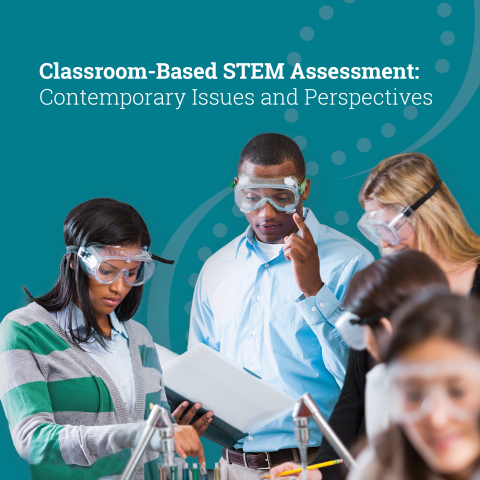Conference on Computer Supported Education 16th International CSEDU Conference; Angers, France
To learn more, visit https://csedu.scitevents.org/Home.aspx.
To learn more, visit https://csedu.scitevents.org/Home.aspx.
To learn more, visit https://cue.org/page/conferences.

This report takes stock of what we currently know as well as what we need to know to make classroom assessment maximally beneficial for the teaching and learning of STEM subject matter in K–12 classrooms.
Artificial Intelligence (AI) is prevalent in nearly every aspect of our lives. However, recent studies have found a significant amount of confusion and misunderstanding surrounding AI. To develop effective educational programs in the field of AI, it is vital to examine and understand learners' pre- and misconceptions as well as myths about AI. This study examined a corpus of 591 studies.
Artificial Intelligence (AI) is prevalent in nearly every aspect of our lives. However, recent studies have found a significant amount of confusion and misunderstanding surrounding AI. To develop effective educational programs in the field of AI, it is vital to examine and understand learners' pre- and misconceptions as well as myths about AI. This study examined a corpus of 591 studies.
This article pilots ChatGPT in tackling the most challenging part of science learning and found it successful in automation of assessment development, grading, learning guidance, and recommendation of learning materials.
Zhai, X. (2023). ChatGPT for Next Generation Science Learning | XRDS: Crossroads, 29(3), 42-46. https://doi.org/10.1145/3589649
This article pilots ChatGPT in tackling the most challenging part of science learning and found it successful in automation of assessment development, grading, learning guidance, and recommendation of learning materials.
The need for mathematical modeling is vital in answering critical questions like disease spread and climate change, but beginners lack the necessary skills to plan, organize, and execute such tasks. Also, current tools are insufficient for optimal learning. To address these issues, we're developing a web-based technology (M2Studio) and a 10.5-hour curriculum to introduce students to mathematical modeling using dynamically linked representations. This three-year project aims to enhance students' modeling skills and understanding.

NLP-TIPS takes advantage of natural language processing (NLP) methods to detect students’ ideas in written science explanations. We design adaptive guidance that supports each student to consider their own ideas and pursue deeper understanding of phenomena. This work continues a successful partnership between University of California, Berkeley, Educational Testing Service (ETS), and science teachers from schools enrolling students from diverse racial, ethnic, and linguistic groups whose cultural experiences may be neglected in science instruction.

The purpose of this project is to gather, analyze, and synthesize research studies that have investigated different approaches to supporting students in grades 6-14 in learning to analyze, interpret, and reason about data with a focus on variation and covariation. We will use Robust Variance Estimation (RVE) to examine how effect size estimates depend on intervention characteristics, study design, outcomes of interest, and demographic characteristics of participants in the studies.

STRIDES supports science teachers to rapidly respond to the diverse students in their classrooms. Leveraging advances in natural language processing, the project analyzes student written explanations of scientific phenomena to provide fine-grained summaries to teachers about student knowledge integration across NGSS dimensions. STRIDES suggests learning science-based customizations and studies how teachers use the summaries and customization suggestions to improve student progress. The researchers study how well the customizations address the learning needs of diverse students.

This project is conducting research on the modes of interaction that effectively prepare K-2 teachers to engage in reflective inquiry about their students’ emergent use of computational thinking strategies, and embed those learnings within a CoP platform to support scalable teacher professional development.
